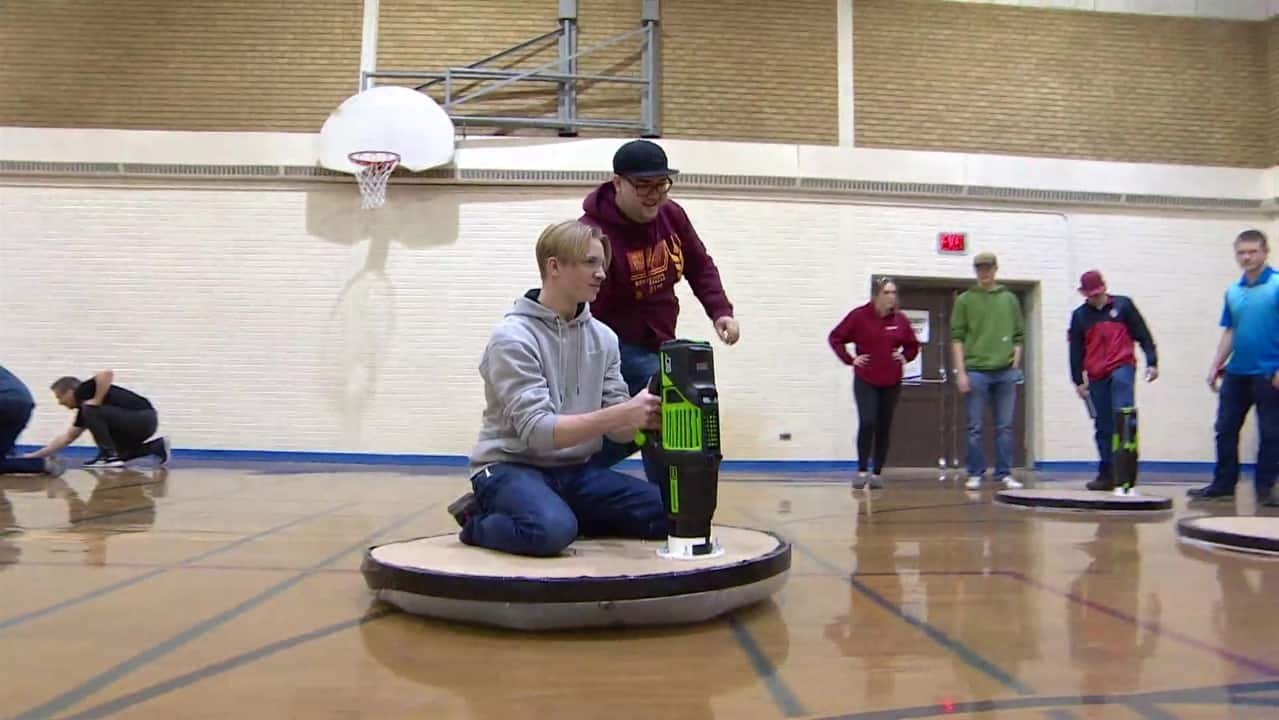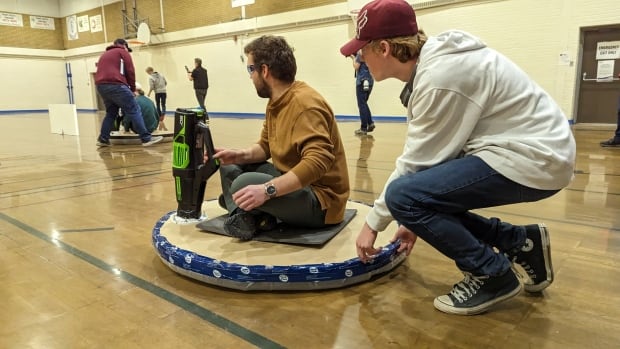
A handful of students levitated around the Saskatchewan Polytechnic gymnasium in Saskatoon earlier this week, lifted by the air power created by cordless leaf blowers.
The post-secondary school’s first-year mechanical engineering technologists spent about a month building hovercraft, with the goal of testing their speed and balance under different design parameters and taking an investigative approach to creating and constructing.
“We were kind of skeptical about how it would work,” said student Carter Pierce, a few moments before sitting on the plywood and polystyrene foam composite frame of one hovercraft.
“We weren’t sure and we messed around with how much holes were on the inside and stuff like that,” said Pierce.
“I didn’t even know how hovercrafts worked before this.”
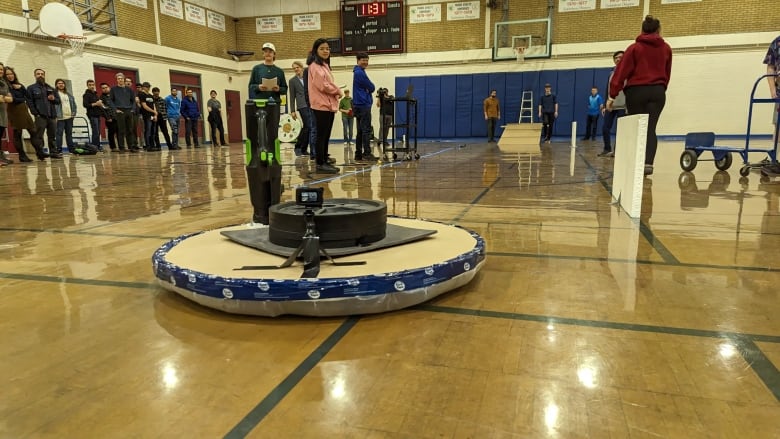
According to class instructor and program head Kurt Soucy, the leaf blower inflates a bonnet of polyethylene plastic sheeting and then blows out underneath it to create an air cushion. That lets the hovercraft glide across the ground with minimal friction.
Four groups of students, with four to six students in each group, were tasked with procuring the materials and building the units, which had slight variations from each other but were all in the roughly one-metre-wide range.
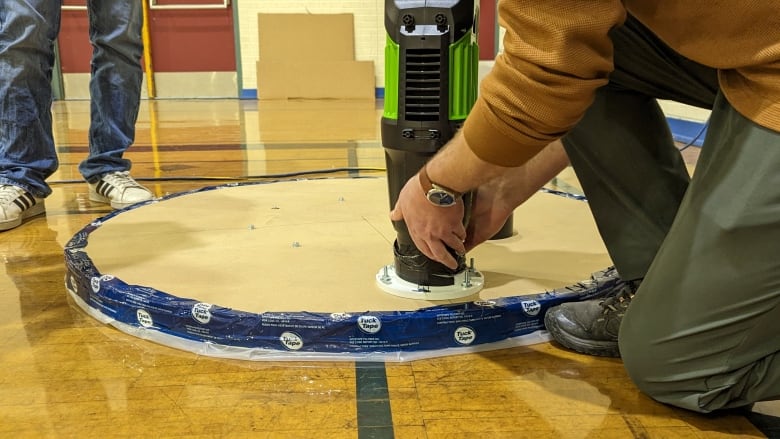
“We recognize this is an opportunity in a first-year class to allow the students to work in a team environment and a creative role,” said Soucy.
As well, “I just think it’s fun,” he said.
On Monday, the students stacked a few metal plates weighing about 20 kilograms (45 pounds) each onto their craft before sending them floating down a wooden ramp for a speed test.
WATCH| Saskatchewan Polytechnic students create homemade hovercraft:
A leaf blower, some plywood and a bit of foam and plastic wrap are the main ingredients a handful of first-year Saskatchewan Polytechnic mechanical engineering tech students used to build a hovercraft recently in Saskatoon.
A handful of second-year students stood on the sideline, clapping and whooping when one hovercraft barrelled down the ramp, past timing gates with ultrasonic motion detectors and into the hands of students on the other edge of the gymnasium.
The program is always looking for ways to give students a hands-on experience, sais Soucy.
“It’s that prepping them for what a potential role as a technologist could have them do.”
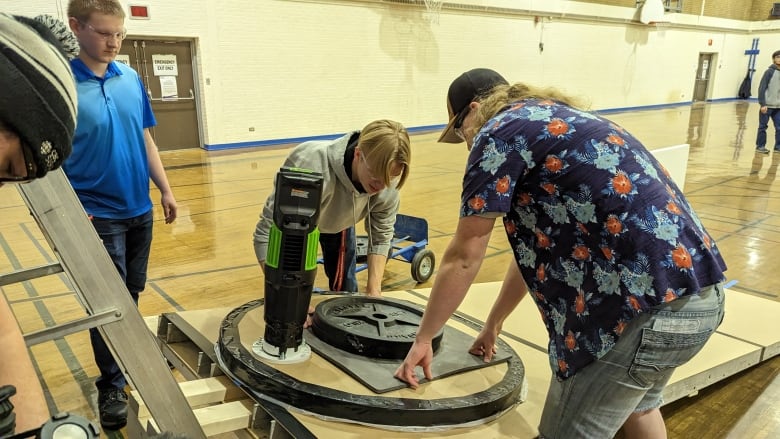
Building a hovercraft and working hands-on cuts through the dryness of the usual school curriculum, said Matthew Berube, another first-year student who tested out his group’s hovercraft.
“We had our first semester — you get a bunch of new equations and formulas pushed at you, so this was a fun way for us to put what we’re learning in the classroom to use,” he said.
This year was the first the hovercraft project was assigned to students, but Soucy said he plans to keep it in some form into the future.
